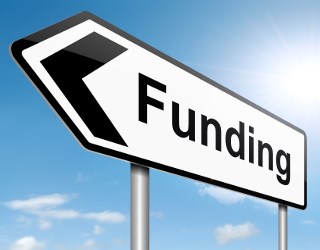 LOAN-4052 MON: Second Shock-Responsive Social Protection Project - C013 Market Assessment Firm (market research services for graduation pilot program) (54214-002)
LOAN-4052 MON: Second Shock-Responsive Social Protection Project - C013 Market Assessment Firm (market research services for graduation pilot program) (54214-002)
LOAN-4052 MON: Second Shock-Responsive Social Protection Project - C013 Market Assessment Firm (market research services for graduation pilot program) (54214-002)
LOAN-4052 MON: Second Shock-Responsive Social Protection Project - C013 Market Assessment Firm (market research services for graduation pilot program) (54214-002) has been closed on 26 May 2022. It no longer accepts any bids. For further information, you can contact the Ministry of Labor and Social Protection
Bellow, you can find more information about this project:
Location: Mongolia
General information
Ministry of Labor and Social Protection
Not available
Closed
Timeline
12 May 2022
26 May 2022
39750
Contacts
Tsolmonbayar Batbayar
Description
1. In response to a deteriorating economic situation, the Asian Development Bank (ADB) has responded to a request from the Government of Mongolia for support to mitigate the socioeconomic impacts of the coronavirus disease (COVID-19) pandemic, particularly on poor and vulnerable groups. The Second Shock-Responsive Social Protection Project (SRSP2) will (i) deliver pro-poor child grant top-ups through support to the child money program, and (ii) strengthen social welfare programs and systems. Three key activities are planned under the second output: (a) updating the poverty targeting system to better identify poor and vulnerable households, (b) digitizing social welfare programs to make the application and benefit delivery processes more efficient and transparent, and (c) pilot testing an economic inclusion program based on the graduation approach with selected poor households to help diversify livelihoods and strengthen their resilience. 2. The executing agency is the Ministry of Labor and Social Protection (MLSP). The introduction of a graduation pilot responds to both MLSP's calls for "smarter" social welfare and the Government Action Plan 2020–2024. Specific actions in the plan’s labour and social welfare section 2.5 include (i) making social welfare services targeted, to promote employment and reduce poverty (action 2.5.7); and (ii) engaging adults in low-income households in vocational and skills training and providing support for employment (action 2.5.9). This terms of reference the graduation approach and the features of the SRSP2 Graduation Pilot Program. Details have been elaborated with the MLSP in a pilot design process led by an expert resource person from the BRAC Ultra-Poor Graduation Initiative and with the participation of the social protection consultant team engaged by ADB under the technical assistance project Building Capacity for an Effective Social Welfare System (TA 9893- MON). Implementation arrangements for the Graduation Pilot Program will be aligned with the proposed amendment to the Social Welfare Law for approval in 2022, which stipulates that services to support targeted household development should be increasingly contracted and outsourced to nongovernment organizations (NGOs). 3. The graduation approach works with poor households, building on a foundation of social welfare benefits with a holistic set of poverty reduction interventions that aim to address the multiple facets of deprivation. Also called economic inclusion, the approach starts from the premise that poverty has many dimensions, so no one single intervention alone (such as education, training, or cash support) will be able to tackle poverty completely. Instead, a multi-dimensional approach is needed that includes but goes beyond cash grants. Pioneered in 2002 by the international development organization BRAC, holistic graduation programs have since been adapted and rolled out in various forms in more than 75 countries, accompanied by rigorous impact evaluation that confirms both immediate benefits and sustainable results long after the program interventions end. 4. Graduation programs offer poor participants a carefully sequenced set of solutions. These are usually time-bound, implemented over a period of 18–36 months. This time-bound nature tends to appeal to governments and implementing partners. Graduation supports household consumption in the short term (through cash or food support, depending on the context) while developing sustainable and resilient livelihoods in the long run. The interventions combine targeted social assistance with the transfer of a productive asset, support for financial inclusion, tailored skills training, livelihood development, social inclusion, and, very importantly, psychosocial support and life skills through a coach or mentor. The typical program components across different countries and contexts are: (i) social welfare transfers (cash or food) to help families meet their immediate consumption needs; (ii) an asset transfer selected by the participant from a list of options, based on a detailed local market assessment and value chain analysis; (iii) focused technical and business skills training to develop the capacity to turn the asset into a productive enterprise; (iv) financial literacy training and financial inclusion; and (v) regular coaching and mentoring by a trained facilitator or social worker who provides support tailored to each participant through frequent home visits, often based on a family development plan. 5. The Graduation Pilot Program will support 1,520 working-age adults aged 18-55 in poor households with the goal of building on cash transfers to provide holistic support that leads to economic inclusion, diversified livelihoods, and poverty reduction. The pilot will be implemented in three districts of Ulaanbaatar, selected for their high concentration of poor and vulnerable households: Bayanzurkh, Chingeltei, and Songino Khairkhan. PLEASE SEE THE ATTACHMENT FOR DETAILED TERMS OF REFERENCE.
Receive Daily Tenders and Grants notifications
Subscribe nowFeatured tenders
Get free access to our Tenders & Grants Database
Our service is free of charge and will always be
Join NowDonors
-
 AFRICAN UNION
AFRICAN UNION
-
 BELGIAN DEVELOPMENT AGENCY
BELGIAN DEVELOPMENT AGENCY
-
 CARIBBEAN DEVELOPMENT BANK
CARIBBEAN DEVELOPMENT BANK
-
 EUROPEAN BANKING AUTHORITY
EUROPEAN BANKING AUTHORITY
-
 EUROPEAN BANK FOR RECONSTRUCTION AND DEVELOPMENT
EUROPEAN BANK FOR RECONSTRUCTION AND DEVELOPMENT
-
 DEUTSCHE GESELLSCHAFT FUR INTERNATIONALE ZUSAMMENARBEIT
DEUTSCHE GESELLSCHAFT FUR INTERNATIONALE ZUSAMMENARBEIT
-
 ICF 'ALLIANCE FOR PUBLIC HEALTH'
ICF 'ALLIANCE FOR PUBLIC HEALTH'
-
 NORTH AMERICAN DEVELOPMENT BANK
NORTH AMERICAN DEVELOPMENT BANK
-
 ORGANISATION FOR ECONOMIC CO-OPERATION AND DEVELOPMENT
ORGANISATION FOR ECONOMIC CO-OPERATION AND DEVELOPMENT
-
 UNITED NATIONS PROGRAMME ON HIV/AIDS
UNITED NATIONS PROGRAMME ON HIV/AIDS